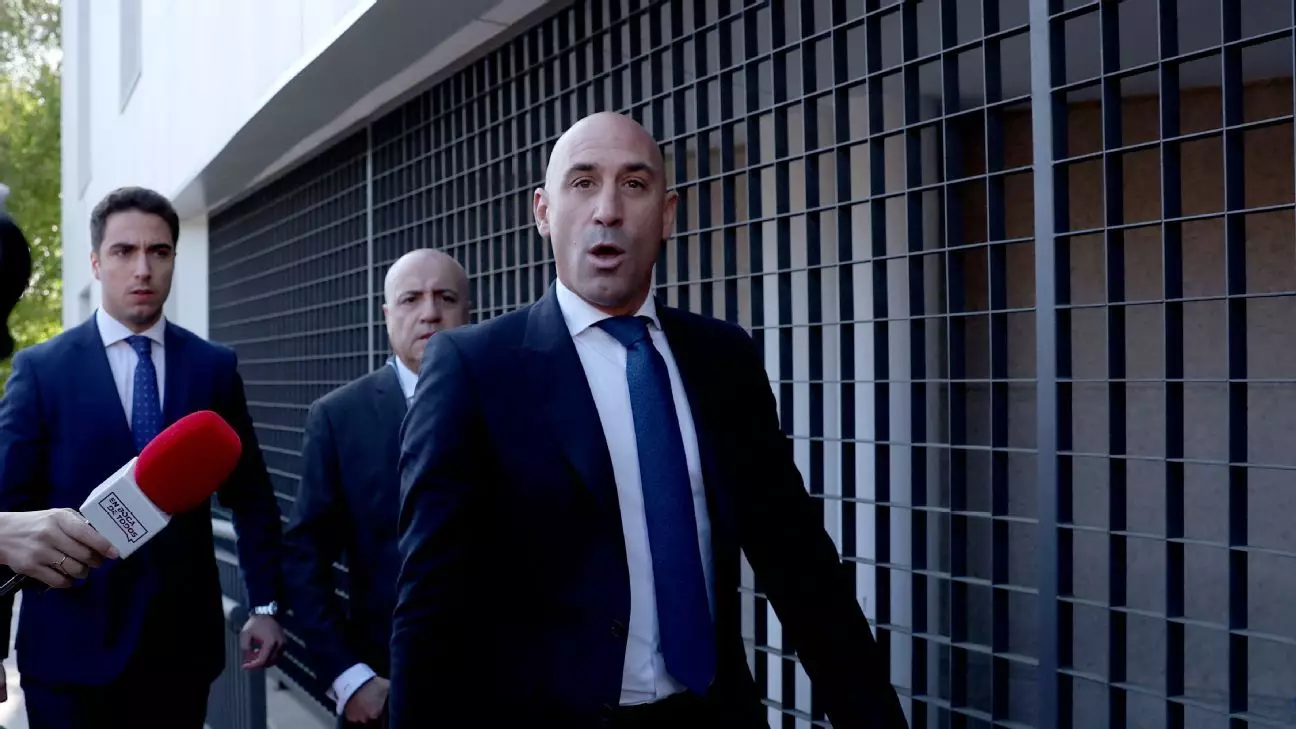Former Spanish Football Federation (RFEF) president Luis Rubiales recently found himself in the center of a scandal as he faced questioning in a court appearance regarding alleged corruption, money laundering, and dishonest administration. Rubiales, who served as president for five years, vehemently denied receiving any illegal payments in connection with the deal that brought the Spanish Supercopa to Saudi Arabia. Despite his denials, the investigation continues to shine a light on potential wrongdoing during his tenure.
Rubiales’ presidency came to an abrupt end in September last year when he resigned amidst widespread criticism for his behavior during the celebration of Spain’s Women’s World Cup win. A criminal investigation was launched after he was seen kissing player Jenni Hermoso on the lips, leading to further scrutiny and legal challenges. Prosecutors are now seeking a 2 1/2-year jail term for Rubiales, adding to the mounting legal woes he currently faces.
The situation escalated when Rubiales was arrested following his return to Spain from the Dominican Republic. He was named a suspect in a corruption inquiry that prompted police raids on the federation’s headquarters and his personal residence. Despite these challenges, Rubiales maintains his innocence and asserts that he has always operated within the bounds of the law. His time at the helm of the RFEF was characterized by achievements in both financial management and sporting success, although detractors argue that his legacy is tainted by controversy.
During his court appearance, Rubiales defended his decisions, including the agreement to host the Spanish Supercopa in Saudi Arabia and awarding contracts without public tender processes. He refuted allegations of paying commissions to prominent figures such as Gerard Piqué, emphasizing that these actions were necessary to navigate the financial difficulties faced by Spanish football during the COVID-19 pandemic. Rubiales underscored that all agreements underwent thorough review and approval by relevant committees within the federation.
As the legal proceedings unfold, the judge presiding over the case imposed restrictions on Rubiales, allowing him to retain his passport but requiring monthly check-ins with the court and approval for international travel. Rubiales’ successor, Pedro Rocha, assumed the presidency unopposed following his tenure as vice president. However, even Rocha was implicated in the corruption inquiry, highlighting the widespread impact of the investigation on the RFEF leadership.
The legacy of Luis Rubiales’ presidency remains clouded by allegations of corruption and misconduct. As legal proceedings continue and new revelations emerge, the Spanish football federation grapples with the aftermath of a tumultuous period under Rubiales’ leadership. The unfolding saga serves as a cautionary tale of the pitfalls of unchecked power and the importance of transparency and accountability in sports governance.

Leave a Reply